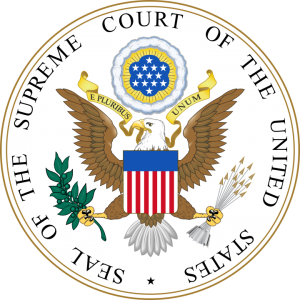A pair of high sta kes False Claims Act (“FCA”) cases went to oral argument before the U.S. Supreme Court on Tuesday, April 18. Both cases concern the FCA’s “scienter” requirement and whether defendants can skirt the Act’s harsh penalties by developing “reasonable interpretations” of confusing or ambiguous regulations after the fact.
kes False Claims Act (“FCA”) cases went to oral argument before the U.S. Supreme Court on Tuesday, April 18. Both cases concern the FCA’s “scienter” requirement and whether defendants can skirt the Act’s harsh penalties by developing “reasonable interpretations” of confusing or ambiguous regulations after the fact.
The cases in question are whistleblower-led suits against supermarket retailers SuperValu and Safeway, accusing them of overcharging federal healthcare programs for prescription drugs. In the lawsuits, the whistleblowers accused the retailers of failing to offer discounts on generic drugs to patients whose medications were being paid for by federal healthcare programs. In response, the defendants argued that they had adopted objectively reasonable, albeit incorrect, interpretations of ambiguous healthcare regulations. The Seventh Circuit Court of Appeals sided with both retailers in 2-1 split decisions.
The whistleblowers in both cases appealed, arguing that the decisions allow defendants to avoid FCA liability by developing crafty post hoc interpretations of the law, effectively eliminating the Act’s ability to combat fraud. On the other hand, the defendants argue that overturning the Seventh Circuit’s rulings will allow opportunistic relators to take advantage of and profit from confusing or ambiguous regulations.
The resolution of these cases could potentially transform FCA litigation and is, therefore, a matter of significant contention among the FCA Bar. Both plaintiff and defense counsel have dedicated considerable resources and received backing from numerous independent organizations to support their argument to sway the High Court in their favor.
Traditionally the Supreme Court has reached a unified consensus when ruling on FCA cases, with both Republican and Democrat justices wanting to maintain the efficiency and integrity of the Act. That being said, it remains unclear how the High Court will rule on the cases at hand, considering that the issue of a defendant’s knowledge of fraud has become increasingly politicized, which may result in a more partisan approach to the cases.
Both sides have argued that if the Court overwhelmingly ruled in favor of the other, it would sway the balance of power too greatly in future FCA cases. For one, the plaintiffs argue that if the Court were to affirm the Seventh Circuit’s decisions, it would effectively destroy the FCA’s enforcement power and encourage companies to engage in fraudulent activities whenever they can rationalize it after the fact. Meanwhile, defendants argue that any ruling favoring the plaintiffs would effectively make any FCA claim against a company a death sentence due to the law’s harsh civil and criminal penalties.
While the justices may rule on either side of the split, analysts and FCA attorneys believe it’s more likely that the Court will compromise and adopt a middle-ground position. Many believe a compromise would likely be more impactful since Congress has routinely intervened to impose new legislation when a Supreme Court decision has an immense impact on FCA enforcement. If the Court ruled overwhelmingly in favor of either side, it might prompt congressional action.
It remains to be seen how the High Court will rule on the cases; however, what is certain is that the decision will profoundly impact the future of FCA litigation. Potential whistleblowers should watch how these cases continue to develop and their eventual outcome, which might undermine their FCA claims.


